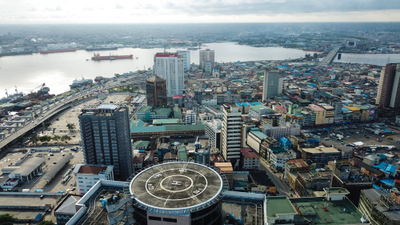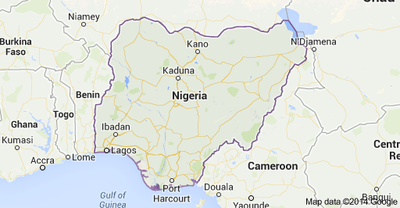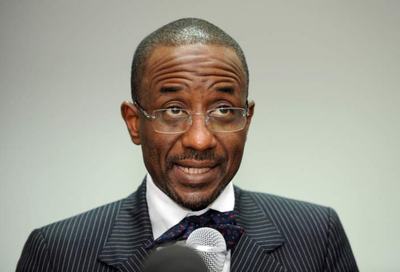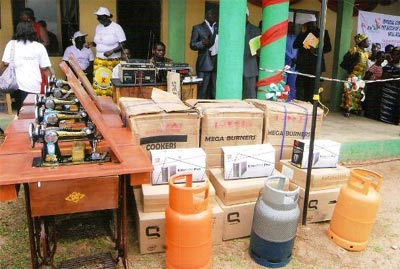What Botswana can teach Nigeria about being ‘Resource- Curse free ’
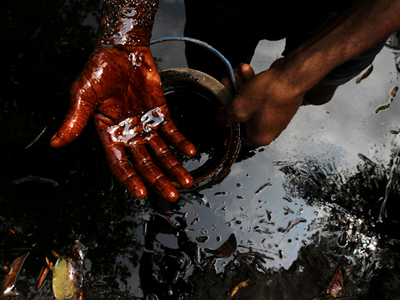
Nigeria remains the largest country in Africa with a growing population of more than 70 million people which accounts for 47% of West Africa’s population. The country’s economy is now taking the leading role having added 89% to its GDP making it worth $510 billion, surpassing the former leader South Africa which was worth $370 billion at 2014. It is true that Nigeria’s capacity as the largest oil exporter in Africa, one of the leading producers in the world has contributed to the growth of the economy being witnessed. There is therefore a great potential for a nation like Nigeria to leverage on this economic dividends to reduce poverty and generally improve the life of its people significantly.
However, many oil rich countries including Nigeria have become victims of the term “resource curse”. This concept is explained as the reality of minerals, fuel and resource wealth in a country that hinders such a country from making progress in terms of development and the social well-being of its people. The concept was initially conveyed with the idea of “Dutch disease” by economists in the 1970s. From the mid-1990s, two economists, Jeffery Sachs and Andrew Worner promoted the resource curse term after discovering that countries that exported more fuels, minerals and agricultural products experienced slower growth. The sad reality is that Nigeria fares poorly on measures of poverty and income distribution. Poverty rate measured by the population living under less than $1 per day rose from about 36% to about 70% between 1970 and 2000. In clearer terms, the poor increased from 19 million to 90 million from 1970 to 2000, despite Nigeria’s oil wealth. According to the World Bank’s Global Monitoring Report 2014/2015 on Ending Poverty and Sharing Prosperity, almost three-fifths of the world’s extreme poor are located in just 5 countries, consisting of Bangladesh, China, the Democratic Republic of Congo, India and Nigeria.
This paradox also comes to play as Nigeria’s poverty rates are even higher than other surrounding nations like Niger and Benin Republic despite the amount of wealth the nation possesses. There is an urgent need to probe deeper into how the resource curse elements affects Nigeria in relation to the three main pillars of sustainable development which are social, economic and environment.
Before being ‘Resource-cursed’
Not until 1958 when Nigeria joined the league of oil-producing nations, the agricultural sector was flourishing and contributed over 65% to the Gross Domestic Product (GDP). The country earned most of its foreign exchange earnings as a net exporter of cash crops from agriculture. Leading crops that played such important roles in the yesteryears were groundnuts, cocoa, cotton, timber and palm produce. These crops provided the nation with enormous benefits ranging from job creation, diversification of economy, manufacturing, food security and national productivity. The emblems of that period ranged from the groundnut pyramids which were tens of thousands of groundnut bags which covered a wide range of land. These groundnut pyramids were built across Northern states in Nigeria. Although they served as business and commercial centres, the pyramids also became known as a tourist attraction. Another case in point is the support of the prominent role agriculture played before the oil divergent was in the area of cocoa production. An edifice which was once the tallest building in tropic Africa still remains in the city of Ibadan, southwest of Nigeria built from cocoa proceeds.
Today, over 80% of Nigeria’s foreign exchange comes from the oil sector alone. This new shift has been to the detriment of the sectors such as textiles and agriculture, which has been ignored at the expense of the total well-being of Nigerians. Other areas such as aquaculture have even suffered harmful effects because of this over-dependence on the oil sector. Nigeria is said to have lost an estimated USD 10 billion in annual export from groundnut, cocoa, cotton and palm oil over the past 20 years according to the Food and Agricultural Organization of the United Nations (FAO). In 2008, Nigeria produced about 2 million metric tons of rice while it imported about 3 million metric tons. A major factor for this has also been traced to a decline in production and support of agricultural crops due to oil over-dependence.
Present day woes
The first out of a myriad woe the resource-curse has brought upon Nigeria is unemployment. Prior to the oil boom, the agricultural sector played a major role in job creation. About 70% of the country’s workforce was engaged in agriculture through different forms of activities. The wage earned by the average worker during that period was also comparable to what was available in the international scene. This also implied that the average Nigerian worker could also afford living a decent life. It should be also noted that most of the workers were from the rural communities. The oil boom signaled a new wave of migration from rural to urban centres at the expense of the agricultural sector. As a result of diminishing investments in the agricultural sector, one would expect that supply chains also drastically reduced, giving no choice to the populace than to find other means of livelihood in the available alternatives that could only cater for a meager number.
One cannot ignore that the oil boom also enabled the government to invest its returns in the creation of academic institutions like universities. But these investments did not critically look into solving basic infrastructural gaps such as good roads and power supply. Consequentially, the idea to promote Small and Medium Enterprises (SMEs) was a failure as many start-ups regardless of whether they were urban or rural situated failed due to infrastructural deficits.
Furthermore, environmental degradation due to oil spillage is an imminent hazard the oil boom has brought upon Nigeria. Since the inception of oil drilling in Nigeria, an estimated 10 million barrels have been spilled as of 2012. These spillages have caused pollution of bodies of water, destruction of aquaculture, vegetation and agricultural lands. The imprudent nature of the private sector comprising of oil companies have increasingly left the oil zones inhabitable and degraded environmentally. The Niger Delta which serves as the major part of the country where oil is produced have had many inhabitants forced to live impoverished lives because of the lack of access to clean water, food, health and education.
Global Oil Price Decline
The International Monetary Fund (IMF) predicted that the fall in crude oil price will have a drastic impact on the Nigerian economy and other oil producing nations in Africa in 2015. With the price of a barrel of crude oil almost halving from $115 in June, 2014 to $58.25 a barrel this year, this has brought some level of instability to the economy of Nigeria as its revenue has taken a downward turn. The major problem is not with the decline in global oil price, but it has more to deal with an unprepared economy dazzled with the resource curse. To buffer the shock from this decline is oil price, a triggered response from the government was to cut down re-current expenditures and increase taxes on some other areas of the economy.
Case in point – Botswana
Escaping the trap of the resource- curse is not alien to the African continent. Nigeria does not need to go too far to glean from models that have been tested and proven by its counterparts to diversify an economy and foster development. Botswana is a strong example having leaped from being among the 25 poorest countries in the world to emerging an upper-middle income economy in 1998. In 2002, out of the total world natural resources export of about USD 700 billion , Botswana exported diamonds, gold, copper, nickel and other resources to the tune of about USD 2 billion, amounting to over 80% of its total exports. Out of 161 countries, the country is the 18th largest resource exporter. Botswana’s mining sector which contributes about 40% to its GDP only employs 4% of the working population.
One major factor that has helped Botswana ride over the resource curse plaguing other nations in the continent like Nigeria is sound institutions and GOOD GOVERNANCE. Botswana has enjoyed a vibrant political leadership post-independence from the British colonialism and keeps fortifying its institutions with effective governance. Based on the Governance Research Indicator Country Snapshot (GRICS) database developed by Kaufmann, Kraay and Mastruzzi (2003), Botswana has enjoyed good governance by global standards which covers areas such as voice and accountability, political stability, government effectiveness, quality of regulation , rule of law and corruption control. This clearly shows that the government remains the fulcrum upon which the society thrives. True development can only be based on a foundation of good governance which comprises of sound policies and implementation of them to help a nation transit form resource-curse to diversification of the economy.
Final Words
There is no doubt that the Nigerian economy possesses much more potential than many countries in the region because of its enormous wealth embedded in both natural and human resources. The idea is not to forgo the oil industry completely but to channel a larger chunk of the revenues emanating from it to develop other value industries that have the great prospects to cause a socio-economic impact. To achieve this, the following action points are recommended:
- Good governance at all levels of government (local, state and federal)
- Revitalizing Agriculture because of its advantage in areas of food security, international trade and job creation
- Investment in green economy : This involves looking into areas of renewable energy and promoting a circular economy to maximize resources and cut waste
- Support manufacturing industries through public-private partnerships and tax incentives
- Tackling corruption, promoting accountability and responsibility among all stakeholders
Picture Credit: Akintunde Akinleye/Courtesy Reuters
